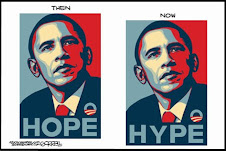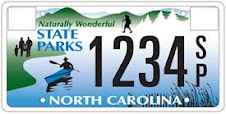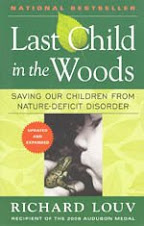A quick (or not so quick )response with a lot of hyperlinks. Giving away gas cards to drivers who are feeling the pinch is like giving low sodium potato chips to a dieter. They feel that they can eat twice as much with only half the guilt. This crisis began during the post-Katrina time, and is not going away. The price of gas has not kept up with inflation for many years - now it is all happening at once, and it is a huge wake-up call. Short-term, feel-good ideas are not what is needed. We need fresh ideas followed by quick action. An example of such an idea is fuel banks, where people buy gallons of gas at a fixed price and consume it whenever they feel the spread between current prices and their price is sufficient. How about that as an economic stimulus.
Beware of the Sirens' call of current ads for 'locking in' to $2.99 gas for two years if you buy a pick-up truck now. This gimmick is only going to exacerbate the problem (demand) in the short run, and cause a bigger problem in two years when the promotion is gone, or sooner when the rebate is spent. (The promotion is actually an inventive rebate based on annual fuel consumption, average miles to the gallon, and the current price of gasoline.) There is another plan that will pay for 50% of the gas consumed for two years based on the "Muroni Sticker."
Detroit has sat on the sidelines while the Prius and the Insight have taken off. Detroit was holding out for fuel cell technology. As the big three saw the sales of highly profitable SUVs fall, they decided to make Hybrid SUVs - an oxymoron if there ever was one. The proposed gas tax holiday is a political gambit of robbing Peter to pay Paul (Taking money to improve roads to allow people to drive more on roads that need repair.)
There are three plans that need to be brought to everyone's attention. The first two plans were referenced in a APA Interact article: The 1808 Gallatin Plan and the 1908 Roosevelt Plan. Both plans are referenced on the America 2050 website. There are two articles on the 2050 website that may be of interest: A Briefing Book from a May 9, 2008 Meeting (it states ...recognition of the problem is not the challenge; rather it is the lack of imagination, creativity, and most of all, political will and leadership to re-think the fundamental principles and institutional design of our policy making and governing processes...) and the America 2050 Prospective, which is a very easy read with a lot of graphs and pictures (I have read this one.) The best article I have read on the need for a national infrastructure plan is the Robert Fishman Article "1808-1908-2008 National Planning for America." We owe a lot of our current successes, and current problems, to planning that was done 200 and 100 years ago, respectively. "national plans and the infrastructure they inspired resulted in dramatic economic growth...accompanied by unanticipated consequences ...damage to the environment and often unfair an inequitable distribution of economic benefits." (Rebuilding & Renewing America, pg. 6)
There is an abundant amount of information as to what can be done to promote sustainability. Locally, UNC-Chapel Hill, NC State, and Duke are all working on, and actually, reducing their carbon footprints, in order to become more sustainable. UNC and NCSU have their own sustainability reports with great ideas that could be administered on much larger scales. There are even national organizations that focus on Campus Sustainability. Chapel Hill and Durham have recently hired Sustainability Planners.
This is an exciting time to be in planning. I returned to graduate school to study Sustainable Development. I have read many great books on the subject, one of which is Randal Arendt's Conservation Deisgn for Subdivisions.
Sustainability can be as simple as co-location of police, fire, school, and library facilities. Another option would be more round-abouts/traffic circles to keep traffic moving versus being stuck in traffic wasting time and gasoline. Sustainability can be requiring all new irrigation systems to use graywater, and retroactively fit existing systems to gray water use within a set period of time. Encourage development along bus-lines, support location efficient mortgage programs, green mortgages, and LEED programs. Sidewalks and Safe Route to School programs could reduce morning traffic headaches. We may need to look to Eco-housing (there is one in Carborro where one or two houses are on the grid in reverse - they sell energy to the system) and Earthships. We will have to rethink flood and hurricane insurance issues.
As a final thought, I recently read a paper from the Congressional Budget Office (May 2008) titled Issues and Options in Infrastructure Investment. One of the points that the article makes is that there is a Policy Environment, as well as and economic environment, in which we must work. I would add to that discussion the 'environment environment.' Another point made in the report was that we have to identify and realize the costs to build, sustain, maintain, expand, and fund our infrastructure needs. In order for our society to be sustainable, we need sufficient infrastructure. Infrastructure cannot be built through gas-tax holidays and 'give-aways.'
PS. A Cautionary tale as to what happens if we do not behave in a sustainable way is Jared Diamond's "Collapse"







